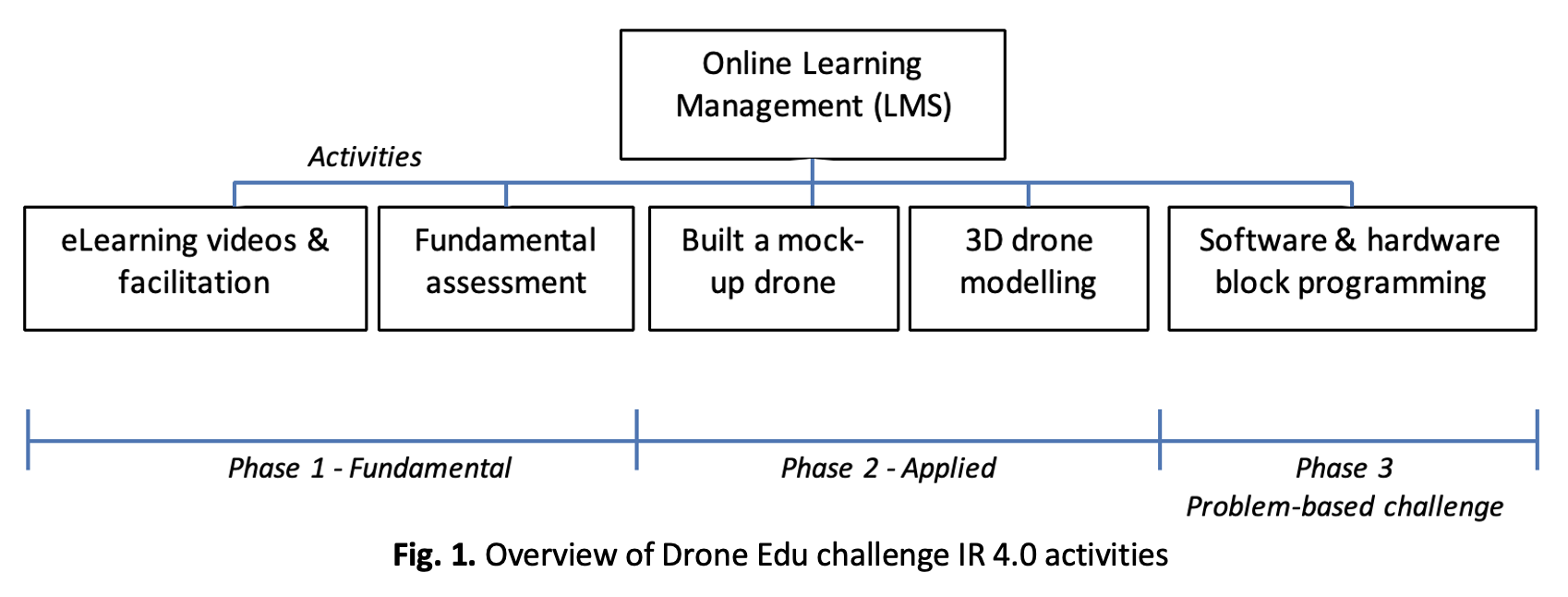Drone Edu Challenge IR 4.0: Expanding Skills Sets of Malaysian STEM Talent Pool
DOI:
https://doi.org/10.37934/araset.37.1.162170Keywords:
Drone Edu Challenge, educational program, Industrial Revolution 4.0, programming skills, STEM talent poolAbstract
As Industrial Revolution 4.0 (4IR) arrived, there is a pressing need to prepare the new generation with skills and knowledge to face the challenges in this era. Programming is the fundamental skills and knowledge that should be introduced and mastered by the youngsters’ generation. There is a wide range of educational programs to develop the skills and knowledge among university students, but less effort is given to help school children to learn these skills. Therefore, Drone Edu Challenge IR 4.0 was designed as an educational program to introduce drones to all secondary schools in Malaysia through a competition at the national level. The participants were provided with webinars, online resources, and facilitators to guide them in learning drones and programming under the safe environment at home due to the pandemic COVID-19 lockdown. Despite the challenges of the lockdown, the participants were able to connect socially and get motivated throughout this program because this educational program was designed to be social, interactive, contextual, fun, and relevant to the students through gamification and tournament. To understand the effectiveness of this educational program, interviews were conducted, and the result showed that the participants have achieved more than what the program was designed for. After undergoing the program, some participants are now the drone and programming experts the schools have identified. They lead and teach their peers to learn programming. They show interest and talent to master STEM knowledge and skills. Therefore, more similar educational programs related to technology of 4IR should be organised to develop the Malaysian STEM talent pool.




























